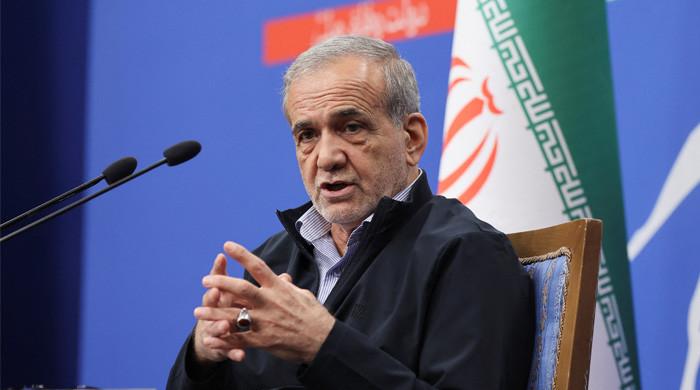- The answer occurs after Trump’s threat to bombarde Iran if diplomacy fails.
- The president of the United States says he preferred to maintain “direct conversations” with Iran.
- Fishshkian asks what the point of threats is if we want a dialogue.
Iranian president, Masoud fishshkian, said on Saturday that his country was willing to participate in the dialogue with the United States as the same, but without clarifying if Tehran would participate in direct conversations.
It occurred after the president of the United States, Donald Trump, who has asked Tehran to maintain direct negotiations about his nuclear program, threatened to bomb Iran if the diplomacy fails.
Iran says he is ready to participate in the dialogue, but refuses to hold direct conversations under threats and pressure.
“The Islamic Republic of Iran wants a dialogue on equal terms,” said Pezeshkian during a meeting, according to the Presidency’s website.
On Thursday, Trump said he would prefer to maintain “direct conversations” with Iran.
“I think it is going faster and you understand the other side much better than if you pass through intermediaries,” said the president of the United States.
But on Saturday, fishshkian asked: “If you want negotiations, what is the point of threatening?”
“Today, the United States is not only humiliating Iran, but also to the world,” added fishshkian, in an apparent reference to recent policies adopted by Trump, including the imposition of import tariffs.
Western countries, led by the United States, have accused Tehran for decades to seek to acquire nuclear weapons.
Iran rejects the accusation and argues that its nuclear activities exist only for civil purposes.
On Saturday, Hossein Salami, head of the body of the Islamic Revolutionary Guard, the ideological arm of Iran’s army, said the country was “ready” for war.
“We are not worried about war at all. We will not be the initiators of the war, but we are ready for any war,” the official IRNA The news agency reported by saying.
In 2015, Iran reached a historical agreement with the permanent members of the UN Security Council, namely the United States, France, China, Russia and the United Kingdom, as well as Germany, to regulate its nuclear activities.
The agreement provided for the relief of sanctions in exchange for curbs in Iranian nuclear activities.
In 2018, during Trump’s first mandate, the United States withdrew from the agreement and restored the sanctions.
In response, I was retreated their commitments under the agreement and accelerated its nuclear program.
On Monday, Ali Larijani, a nearby advisor to Supreme Leader Ayatollah Ali Khamenei, warned that, although Iran did not look for nuclear weapons, “I would have no choice but to do it” in case of an attack against him.




